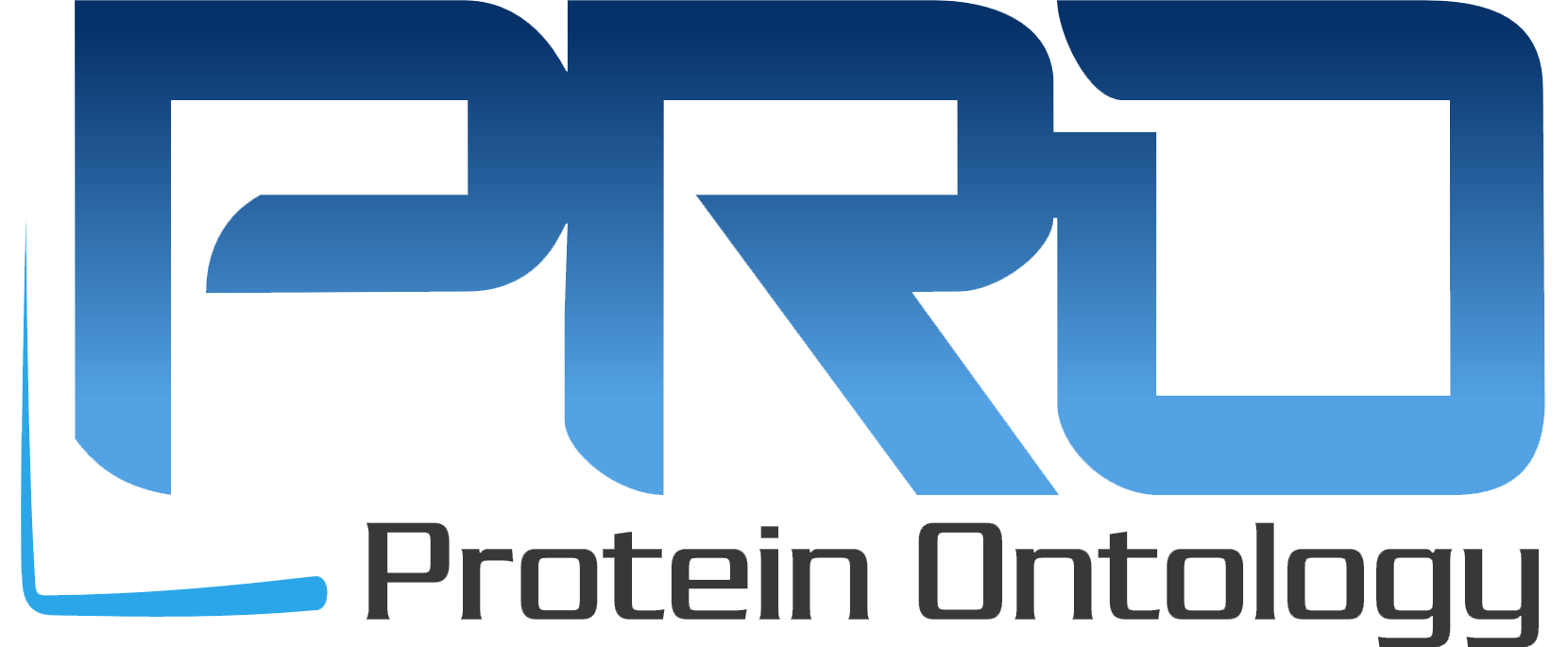|
|
 |
 |
|  |  |
 |  |  |  |  |  |
organism-gene
 |


|

PR:O75469 |
  
nuclear receptor subfamily 1 group I member 2 (human)
 |
  
hNR1I2
 |
 
"A nuclear receptor subfamily 1 group I member 2 that is encoded in the genome of human." [PRO:DNx, UniProtKB:O75469]
 |

| 
|
|
|
 |
 |
|  |  |  |  |
 |  |  |  |
organism-sequence
 |


|

PR:O75469-1 |
  
nuclear receptor subfamily 1 group I member 2 isoform h1A (human)
 |
  
hNR1I2/iso:h1A
 |
 
"A nuclear receptor subfamily 1 group I member 2 (human) that is a translation product of some mRNA whose exon structure and start site selection renders it capable of giving rise to a protein with the amino acid sequence represented by UniProtKB:O75469-1." [PRO:DNx, UniProtKB:O75469]
 |

| 
|
|
|
 |
 |
|  |  |  |  |  |  |
 |  |
organism-modification
 |


|

PR:000064860 |
  
nuclear receptor subfamily 1 group I member 2 isoform h1A sumoylated form (human)
 |
  
hNR1I2/iso:h1A/SumoLys+
 |
 
"A nuclear receptor subfamily 1 group I member 2 isoform h1A (human) that includes at least 1 sumoylated lysine. UniProtKB:O75469-1, MOD:01149." [PRO:DNx, Reactome:R-HSA-4755523]
 |

| 
|
|
|
 |
 |
|  |  |  |  |
 |  |  |  |
organism-sequence
 |


|

PR:O75469-2 |
  
nuclear receptor subfamily 1 group I member 2 isoform h1B (human)
 |
  
hNR1I2/iso:h1B
 |
 
"A nuclear receptor subfamily 1 group I member 2 (human) that is a translation product of some mRNA whose exon structure and start site selection renders it capable of giving rise to a protein with the amino acid sequence represented by UniProtKB:O75469-2." [PRO:DNx, UniProtKB:O75469]
 |

| 
|
|
|
 |
 |
|  |  |  |  |
 |  |  |  |
organism-sequence
 |


|

PR:O75469-3 |
  
nuclear receptor subfamily 1 group I member 2 isoform h1C (human)
 |
  
hNR1I2/iso:h1C
 |
 
"A nuclear receptor subfamily 1 group I member 2 (human) that is a translation product of some mRNA whose exon structure and start site selection renders it capable of giving rise to a protein with the amino acid sequence represented by UniProtKB:O75469-3." [PRO:DNx, UniProtKB:O75469]
 |

| 
|
|
|
 |
 |
|  |  |  |  |
 |  |  |  |
organism-sequence
 |


|

PR:O75469-4 |
  
nuclear receptor subfamily 1 group I member 2 isoform h2A (human)
 |
  
hNR1I2/iso:h2A
 |
 
"A nuclear receptor subfamily 1 group I member 2 (human) that is a translation product of some mRNA whose exon structure and start site selection renders it capable of giving rise to a protein with the amino acid sequence represented by UniProtKB:O75469-4." [PRO:DNx, UniProtKB:O75469]
 |

| 
|
|
|
 |
 |
|  |  |  |  |
 |  |  |  |
organism-sequence
 |


|

PR:O75469-5 |
  
nuclear receptor subfamily 1 group I member 2 isoform h2B (human)
 |
  
hNR1I2/iso:h2B
 |
 
"A nuclear receptor subfamily 1 group I member 2 (human) that is a translation product of some mRNA whose exon structure and start site selection renders it capable of giving rise to a protein with the amino acid sequence represented by UniProtKB:O75469-5." [PRO:DNx, UniProtKB:O75469]
 |

| 
|
|
|
 |
 |
|  |  |  |  |
 |  |  |  |
organism-sequence
 |


|

PR:O75469-6 |
  
nuclear receptor subfamily 1 group I member 2 isoform h2C (human)
 |
  
hNR1I2/iso:h2C
 |
 
"A nuclear receptor subfamily 1 group I member 2 (human) that is a translation product of some mRNA whose exon structure and start site selection renders it capable of giving rise to a protein with the amino acid sequence represented by UniProtKB:O75469-6." [PRO:DNx, UniProtKB:O75469]
 |

| 
|
|
|
 |
 |
|  |  |  |  |
 |  |  |  |
organism-sequence
 |


|

PR:O75469-7 |
  
nuclear receptor subfamily 1 group I member 2 isoform h3 (human)
 |
  
hNR1I2/iso:h3
 |
 
"A nuclear receptor subfamily 1 group I member 2 (human) that is a translation product of some mRNA whose exon structure and start site selection renders it capable of giving rise to a protein with the amino acid sequence represented by UniProtKB:O75469-7." [PRO:DNx, UniProtKB:O75469]
 |

| 
|
|
|
 |
 |
|  |  |  |  |
 |  |  |  |
organism-modification
 |


|

PR:000045606 |
  
nuclear receptor subfamily 1 group I member 2 phosphorylated 1 (human)
 |
  
hNR1I2/Phos:1
 |
 
"A nuclear receptor subfamily 1 group I member 2 (human) that has been phosphorylated on the residue at the position equivalent to Ser-350 of the amino acid sequence represented by UniProtKB:O75469-1. Example: UniProtKB:O75469-1, Ser-350, MOD:00046." [iPTMnet:O75469, PMID:18784074]
 |

| 
|
|
|
